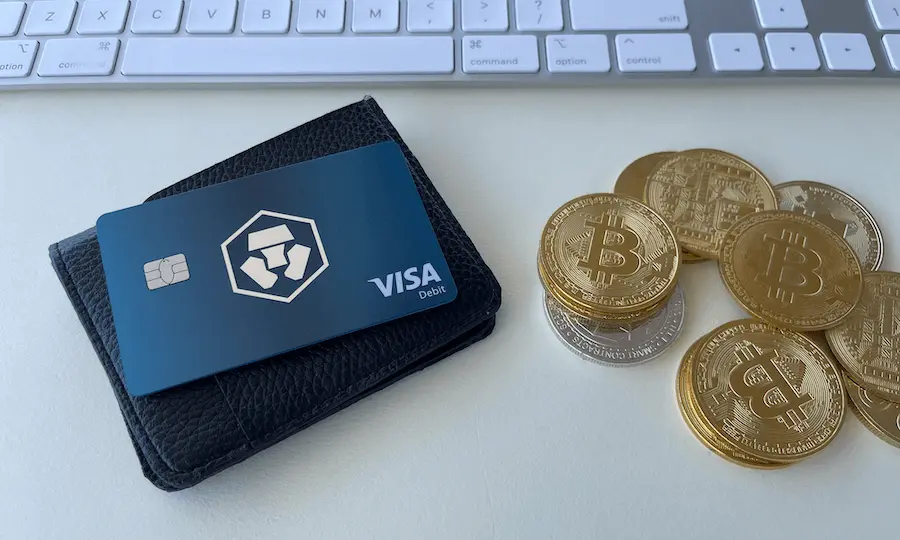Crypto vs traditional credit card : In today’s fast-evolving financial world, the debate between crypto and traditional credit card isn’t just about speed or fees — it’s also about compliance, legality, and trust. As digital payments become the new normal, regulators around the world are racing to define, adapt, and sometimes rein in the tools we use to transact.
So what happens when we examine this face-off through a regulatory lens?

Traditional Credit Cards: Mature, Heavily Regulated, and Globally Standardized

Credit cards have been a cornerstone of modern commerce for decades, and their regulatory framework is well-established.
- Consumer Protection: From chargeback rights under Regulation Z (in the U.S.) to the Payment Services Directive (PSD2) in the EU, consumers enjoy strong protections. If your card is lost or misused, you’re usually not liable beyond a nominal amount.
- Anti-Fraud Infrastructure: Banks and card networks deploy advanced fraud detection systems, often backed by legal obligations to monitor suspicious activity.
- Licensing and Oversight: Issuers are typically licensed financial institutions, subject to regular audits and compliance checks. They must follow Know Your Customer (KYC), Anti-Money Laundering (AML), and data protection regulations like GDPR.
In short, traditional credit cards operate within a mature regulatory environment, which gives them a strong edge in legal clarity and consumer trust.
Crypto Payments: Innovation Meets Regulatory Uncertainty

Crypto, on the other hand, exists in a regulatory gray area — and it varies drastically from country to country.
- Licensing Is Fragmented: Some jurisdictions, like Singapore or Switzerland, have introduced clear crypto frameworks. Others, like China, have outright banned crypto transactions.
- KYC/AML Compliance: Many centralized crypto exchanges now enforce KYC/AML policies, but peer-to-peer transfers, DeFi platforms, and non-custodial wallets often fall outside traditional regulatory oversight.
- Consumer Protections Are Minimal: Lost funds? Mistyped wallet addresses? No recourse. Unlike credit cards, there’s no chargeback or fraud reimbursement mechanism baked into most crypto systems.
- Tax Implications: In many regions, using crypto to make purchases triggers capital gains tax events — a legal headache most casual users overlook.
In essence, crypto operates on the frontier of financial regulation — agile and borderless, but still maturing when it comes to protecting consumers and meeting compliance standards.
Crypto vs Traditional Credit Card : Regulatory Bodies Weigh In
Governments and financial watchdogs have started stepping in, trying to keep pace with innovation:
- U.S. SEC and CFTC: There’s ongoing debate over which agency should regulate certain cryptocurrencies — securities or commodities? The result affects how tokens are issued, traded, and taxed.
- EU’s MiCA Regulation: The Markets in Crypto-Assets (MiCA) framework seeks to harmonize crypto rules across Europe, bringing clarity to stablecoins, custodians, and crypto-asset service providers.
- FATF Guidance: The Financial Action Task Force has issued recommendations to implement the “travel rule” in crypto — requiring exchanges to collect and share information about users.
This rising tide of regulation may eventually bring crypto onto equal footing with traditional finance — or it could challenge some of its core values, like anonymity and decentralization.
Crypto vs Traditional Credit Card : The Legal Verdict: It’s Complicated

From a legal standpoint, traditional credit cards are currently more secure, protected, and standardized. They’ve earned their place through decades of legislation and consumer trust.
Crypto, however, is evolving. With each new regulatory framework, it inches closer to mainstream legitimacy — but also faces the risk of losing some of its decentralized charm.
Crypto vs Traditional Credit Card : Legal Maturity vs Legal Innovation
So, which payment method wins the regulatory battle?
- If you value legal clarity, protections, and stability — traditional credit cards are still the safer bet.
- If you’re comfortable navigating legal grey zones and embracing financial sovereignty — crypto offers a compelling, if complex, alternative.
But here’s the twist: many regulators are now focusing on how these two systems can coexist. Crypto debit cards, regulated stablecoins, and hybrid financial tools are merging the old with the new.
The law is catching up to the blockchain revolution. The real winners? Probably those who understand both systems — and use them wisely.
Relevant News : Here











